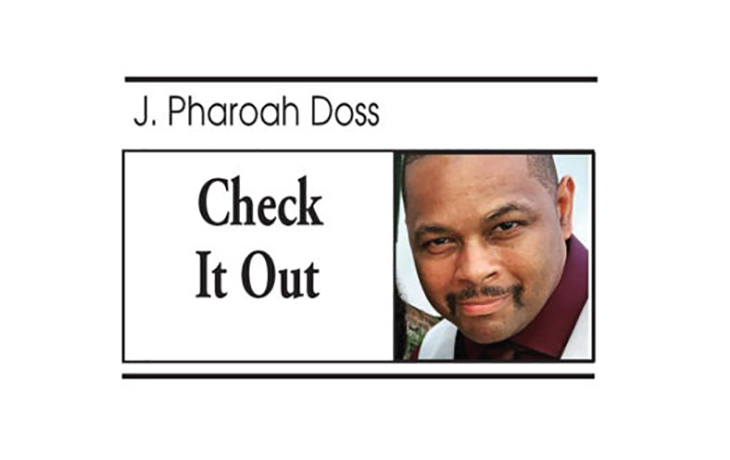HUMAN RIGHTS ACTIVIST OWEI LAKEMFA
Constance Garnett translated the majority of Russian literature into English in the first half of the twentieth century. After translating Dostoevsky’s novel Demons, Garnett changed the title to The Possessed. Decades after Garnett’s death, translators changed the title back to Demons to remain true to Dostoevsky’s theme.
A Russian literary critic explained, “For Dostoevsky, ideas are living cultural forces that have the capacity to seduce and subordinate the individual consciousness, and the individual who has become alienated from his own concrete national traditions is particularly susceptible.”
Dostoevsky’s characters displayed what is now known as ideological possession. The ideology itself isn’t necessarily the problem; it’s the way people believe it, which can be harmful.

Portrait of Fyodor Dostoyevsky, by Vasily Perov (1872). Vasily Perov/Wikimedia Commons
In 2015, the Advocate, a popular LGBT news outlet, reported that antigay Texas pastor Rick Scarbrough, who had promised to go to jail to defend traditional marriage, was now threatening to put himself on fire to prevent marriage equality.
The US Supreme Court allowed same-sex marriage shortly after Scarbrough’s threat. Scarbrough informed the reporters that he never intended to set himself on fire, but his ideological enemies encouraged him to do so. One writer even quipped, “It should be noted that self-immolation is a time-honored way to make a political point. There’s no excuse to get cold feet now.”

During the global COVID-19 pandemic, vaccinations were required at a number of public places in Australia. Conservative politicians from Australia and around the world disagreed with the requirements. On New Year’s Day 2022, a man protesting vaccine mandates set himself and his car on fire. Firefighters extinguished the fire and rushed the man to a hospital.
This man’s action, like Scarbrough’s threat, was perceived as idiotic, and because both were associated with right-wing extremism, their causes were deemed ridiculous and not worth dying for.
However, when individuals are overzealous for left-wing causes, self-immolate, and die, they are celebrated by those who won’t take their own lives but are ideologically possessed enough to live vicariously through the extreme act.
Later in 2022, climate activist Wynn Alan Bruce set himself on fire in front of the United States Supreme Court in Washington, DC. According to those close to Bruce, he was protesting inaction on the climate crisis and had planned the act for over a year.
A Zen Buddhist priest who knew Bruce came to his defense, saying, “This is not suicide. This is a deeply fearless act of compassion to bring attention to the climate crisis.”
Sociologist Michael Biggs noted that this sort of demonstration was employed in South Vietnam to protest the Vietnam War and is still used by Tibetans. Since 2009, over 100 Tibetans have self-immolated as a protest against Chinese rule. Hundreds of activists in India, South Korea, and Kurdistan died by self-immolation while protesting.
Defenders of Bruce would like us to believe that this form of protest is beyond Western understanding, since the Western mind is self-centered and materialistic. Maybe, but that is not why it is beyond Western understanding; suicide is condemned by the major Western religions as well as the major Eastern religions.
The Zen Buddhist priest understood this, which is why it was critical to remove the stigma of suicide from Bruce’s self-immolation in order to celebrate it.
Activists frequently invoke Martin Luther King Jr., to defend “self-sacrifice.” King famously stated, “If a man hasn’t found something he will die for, he isn’t fit to live.” However, King was referring to losing one’s life fighting for the greater good, not taking one’s own life to make a political statement.
Last month, 25-year-old Aaron Bushnell self-immolated at the Israeli Embassy in Washington, DC. Bushnell live-streamed his reasoning shortly before setting himself on fire. Bushnell stated, “I am an active-duty member of the United States Air Force. I will no longer be complicit to genocide. I am about to engage in an extreme act of protest. But compared to what people have been experiencing in Palestine at the hands of their colonizers—it’s not extreme at all. This is what our ruling class has decided will be normal.” While Bushnell was on fire, his final words were, “Free Palestine!”
A number of opinion writers questioned whether Bushnell was a hero or mentally ill.
Human rights activist Owei Lakemfa responded, “I will not put it past people who lost their humanity to claim that Bushnell was a psychiatric case. Such persons cannot understand how a person could sacrifice his life this way.”
Lakemfa compared Bushnell to the abolitionist John Brown.
In 1859, Brown led 22 men to seize the US arsenal at Harpers Ferry to initiate a slave revolt across the South. Ten of Brown’s men were killed during the attack; seven were apprehended and executed, while the rest escaped. Those who knew Brown referred to him as a zealot, no different than the characters in Dostoevsky’s novel The Possessed. Brown even asked fellow abolitionist Frederick Douglass to join the raid. Douglass declined because he thought the idea was suicidal.
Lakemfa eulogized, “The flames that extinguished young Bushnell’s life were in the United States, but they were seen all over the world. They were flames of love for humanity.” Finally, Lakemfa posed a startling question: “What greater love can a human have than to sacrifice his life for others?” Only an ideologically possessed individual would paraphrase Christ to transform Bushnell’s suicide into martyrdom.
Obviously, Lakemfa forgot these paraphrased words of Christ: Many will use my name to lead many astray.